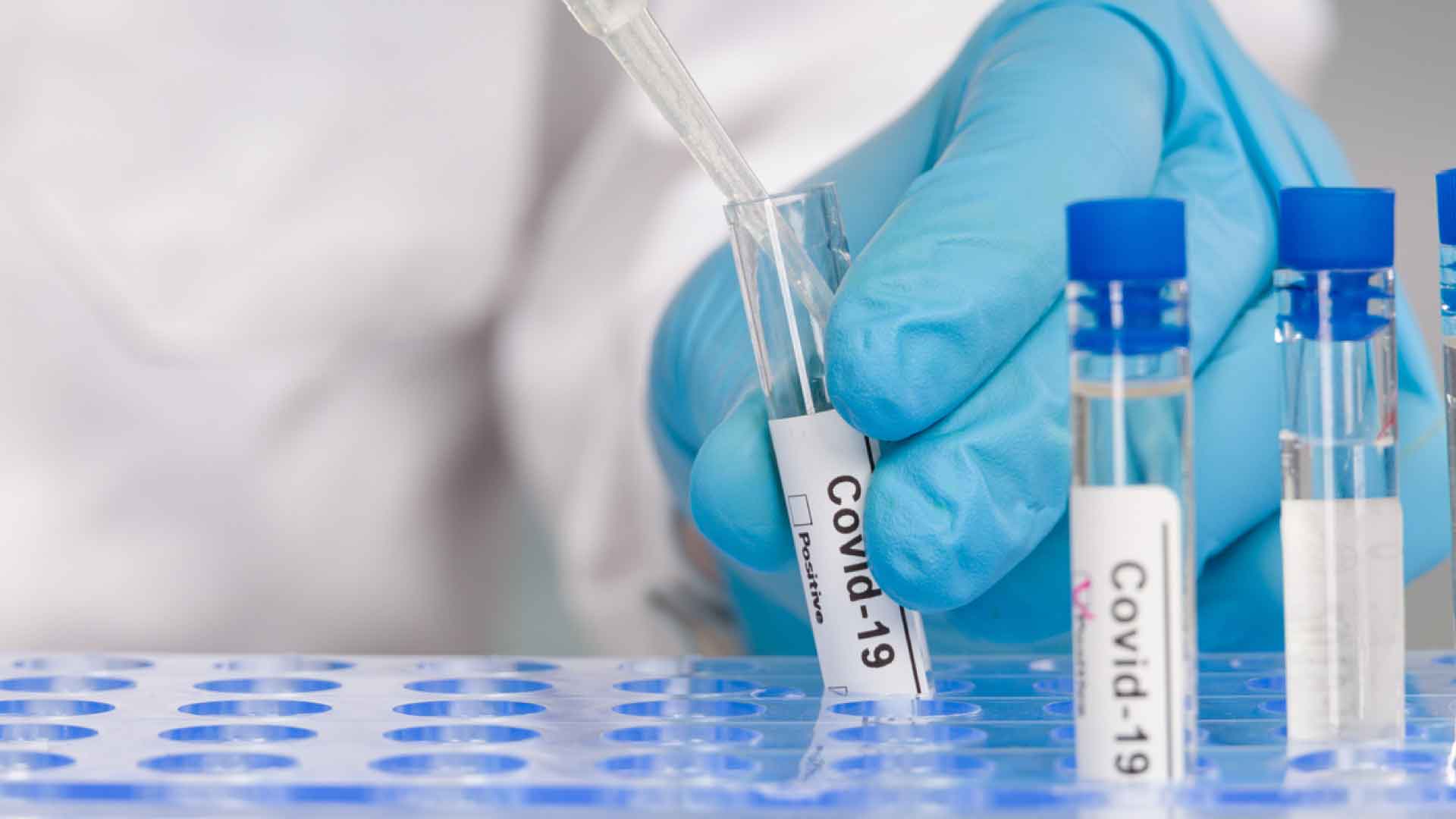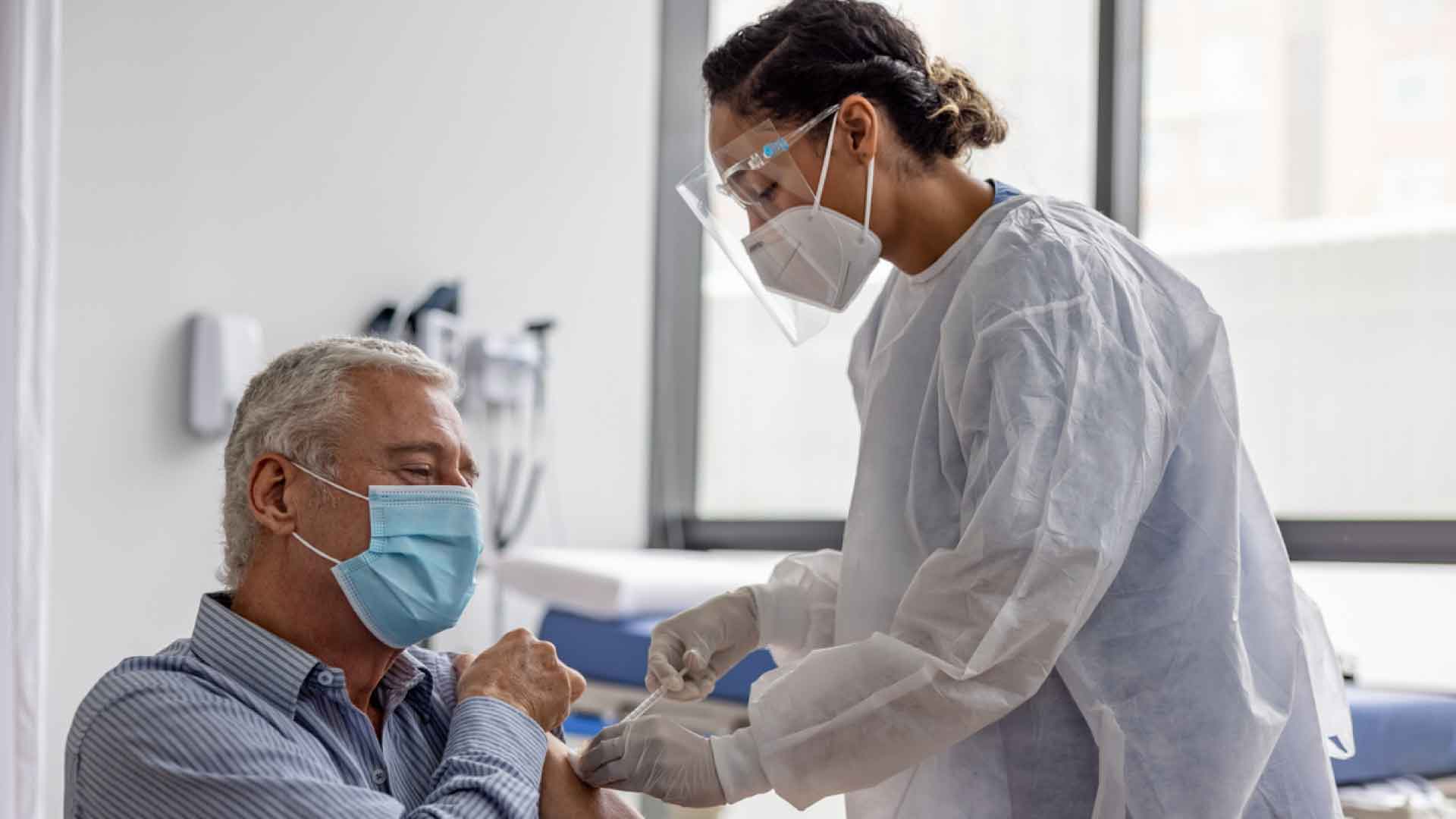While no one really wanted to learn another letter of the Greek alphabet during this pandemic, the Omicron variant of the SARS-CoV-2 virus may not leave us with much choice.
With the announcement of the new variant at the end of November 2021, a flurry of concerns and questions were raised. Is Omicron more contagious? Does the Omicron variant cause more severe disease and death? Do COVID-19 vaccines still protect me from infection?
Since this is a relatively new COVID-19 variant, there’s still a lot we don’t know yet. However, researchers are working around the clock to get answers. In the meantime, here’s what we know so far – and what you can do to help protect yourself.
What is the Omicron variant?
The Omicron variant was identified by South African researchers. The main difference in this variant, according to the CDC, is that Omicron has more changes in the spike protein than other previous variants. [1] In other variants, the CDC reported that those spike protein changes have been associated with reduced effectiveness of vaccines in preventing infection.
However, more research is needed to see if this is the case with the Omicron variant. The CDC still reports that vaccines continue to be effective against severe illness, hospitalization, and death. So far, the symptoms of the Omicron variant also appear to be similar to other previous variants, however, more research is needed to confirm this.

Does testing detect the Omicron variant?
So far, we know that PCR testing can effectively detect a SARS-CoV-2 infection. As of November 28, 2021, the World Health Organization has stated that “widely used PCR tests continue to detect infection, including infection with Omicron, as we have seen with other variants as well.” [2] Studies are ongoing to determine if rapid antigen tests can detect Omicron, but the impact of the new variant on rapid antigen testing has yet to be seen.
What can I do about the Omicron variant?
While a new variant can leave us with a lot of unknowns, it’s important to note that we’re not starting from square one like we were at the beginning of the pandemic. Vaccines, PCR tests, booster shots, masking, and other precautionary measures can help us stay safer against the Omicron variant. Here are a few ways you can take action.
Get tested – even if your symptoms are mild.
While it may take weeks to determine the severity of Omicron, early COVID-19 testing is important to help prevent the spread of the virus. PCR testing has been found to detect the Omicron variant, so it’s important to get tested even if you’re only experiencing mild symptoms.

Get your booster shot.
Now that everyone in the U.S. over the age of 16 is eligible for a booster shot of the COVID-19 vaccine, it’s important for everyone to get their booster dose to receive the maximum amount of protection.
The CDC recommends that individuals who received the Pfizer-BioNTech or Moderna vaccines get a booster vaccine at least 6 months after their primary vaccination series, while individuals who received the Johnson & Johnson’s Janssen vaccine should receive a booster at least two months after completing primary COVID-19 vaccination. [3] The CDC has also said that people can mix and match booster doses. For example, if you got a shot of the Johnson & Johnson vaccine for your primary vaccine, you can get a Pfizer or Moderna booster shot.
Take a PCR test to assist with public health efforts.
Rapid antigen tests can be an alternative when you need COVID-19 results fast, but the results from kits you get from the drugstore can’t help with public health efforts to trace and study the virus. By taking a PCR test, you can help contribute to valuable research and provide results to public health officials who are working to determine how and where the virus is spreading.
While it can be scary to face the unknown of a new variant, you can take action to keep yourself and your loved ones safer. Get tested, get vaccinated, and let’s do our part to prevent the spread of COVID-19.
Sources
[1] “Science Brief: Omicron (B.1.1.529) Variant.” Centers for Disease Control and Prevention, Centers for Disease Control and Prevention, 2 Dec. 2021, www.cdc.gov/coronavirus/2019-ncov/science/science-briefs/scientific-brief-omicron-variant.html.
[2] “Update on Omicron.” World Health Organization, World Health Organization, 28 Nov. 2021, www.who.int/news/item/28-11-2021-update-on-omicron.
[3] “Covid-19 Vaccine Booster Shots.” Centers for Disease Control and Prevention, Centers for Disease Control and Prevention, 9 Dec. 2021, www.cdc.gov/coronavirus/2019-ncov/vaccines/booster-shot.html.


